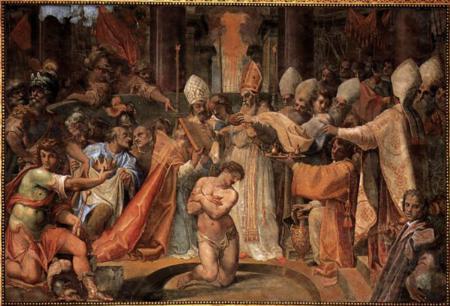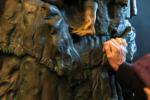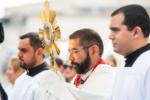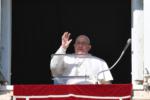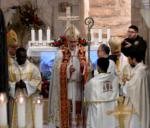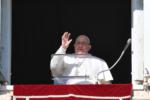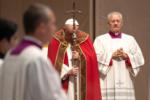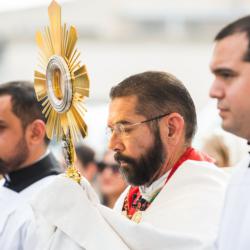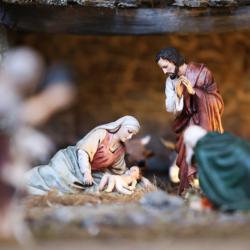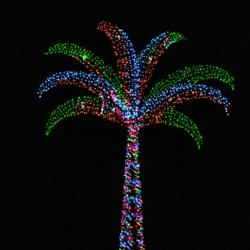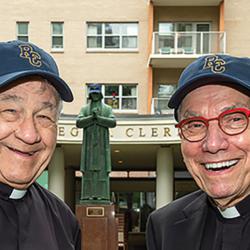Celebrating the gift of salvation all Christmas season long
(OSV News) -- The mysteries and miracles associated with God coming down from heaven and entering the world as a newborn babe exceed the understanding of the ordinary person. Certainly, it is more than we can fathom in a single day. So in addition to Christmas Day, our church gives us not only the eight octave days following the Nativity, but much of January to allow our minds to grasp what has happened. There are feasts and events in the first month of the year that help us assimilate the miracle of Christmas Day and understand who this new child is, his divinity and the meaning of his birth.
-- Solemnity of the Blessed Virgin Mary: Octave Day of Christmas
In the world today, we associate numerous activities with Jan. 1. There are celebrations with family and friends, toasts to the coming year, hours and hours of college football, and the making of New Year's resolutions.
For Catholics, it is also a holy day of obligation, meaning it is our duty to attend Mass. The church commemorates several events on New Year's Day.
Jan. 1 is the Octave Day -- or eighth day -- following Christmas, and it is the day on which we celebrate the role of Mary in salvation history, when she said "yes" to the angel, willing to be God's handmaid and do his will. On this day, we are also reminded of Christ's circumcision and the day he received his name. Additional feasts proclaiming Christ's divinity are spread out over the coming days and weeks.
The honor given to Mary on Jan. 1 is known on the liturgical calendar as the solemnity of the Blessed Virgin Mary, the Mother of God. A solemnity, meaning "solemn" or "dignified," is next to Sunday in the rank order of church feasts and celebrations. Acknowledging Mary as the Mother of God is the oldest of all the Marian feasts and dates back to the first century.
A feast specifically honoring Mary on Jan. 1 was part of the annual church calendar until the 13th century, when it was removed and replaced by the feast of the circumcision of Christ and octave of the Nativity.
In Genesis 17:10-14, God made a covenant with Abraham that every male descendent of Abraham should be circumcised: "Every male among you, when he is eight days old, shall be circumcised."
This act would be the mark of God's chosen people, the Israelites. Mary and Joseph submitted Jesus to the Law. At Christmas, he became man; at his circumcision, he became a Jew. "He had to become like his brothers in every way, that he might be a merciful and faithful high priest before God to expiate the sins of the people" (Heb 2:17).
Although divine, Jesus would comply with all the laws, thus identifying himself as one of the Jewish people.
In 1969, the General Norms of the Church declared Jan. 1 as the solemnity of the Blessed Virgin Mary, Mother of God. Christ's circumcision, his humble acceptance of the Father's will, is still appreciated in the Mass of that day. "When eight days were completed for his circumcision, he was named Jesus, the name given to him by the angel before he was conceived in the womb" (Lk 2:21).
-- Feast of the Holy Name
Jesus' name means "savior" or "God saves" and fully encapsulates who he is. St. Paul says it best: "At the name of Jesus every knee should bend, of those in heaven and on earth and under the earth, and every tongue confess that Jesus Christ is Lord, to the glory of God the Father" (Phil 2:10-11).
The church has long dedicated the month of January to the Holy Name of Jesus. In the 15th century, there was widespread devotion to the Holy Name and, thus, Christ's divinity. By 1721, a feast had been assigned to Jan. 2 (or on the Sunday that fell between Jan. 2 and Jan. 5).
The church's mood reflected that of the psalmist: "I will extol you, my God and king: I will bless your name forever and ever" (Ps 145:1). Our church teaches us to keep always the name of Jesus on our lips especially at the time of our death.
The feast of the Holy Name remained on the calendar until 1969 when it, like the feast of the circumcision, was eliminated. In 2002, it returned as an optional memorial.
-- Epiphany of the Lord
The Epiphany, or manifestation, of Jesus traditionally is held on Jan. 6 (and celebrated the first Sunday after Jan. 1). In the early church, this was the date when the Nativity was celebrated. By the fifth century, most of the world accepted Dec. 25 as the birthdate of Christ. The Eastern church today emphasizes the baptism and the Cana miracle on the Epiphany; in the West, we focus on the visit of the Magi.
The Magi lived in Arabia or Persia, studied the heavens and noted a new star they believed heralded the birth of a king in Israel. God notified the Jewish shepherds of Christ's birth through the proclamation of angels. In a like way, he notified the Magi by a star and gave these non-Jews the grace to follow the star to Bethlehem. Thus, the birth of Jesus was not limited to the Israelites but manifested to all nations. The Magi recognized the child's divinity as they brought expensive gifts, and "They prostrated themselves and did him homage" (Mt 2:11).
-- Baptism of the Lord
On the Sunday in January following the Epiphany, we celebrate Our Lord's baptism, the day when his divinity was made known, when Jesus is identified as the Son of God.
Jesus did not need to be baptized, but he was, by St. John the Baptist, in the Jordan River, in the midst of true sinners.
The Gospels according to Matthew, Mark and Luke all evidence the Holy Spirit descending on Jesus and a voice from heaven crying out, "You are my beloved son; with you I am well pleased."
John's Gospel describes the event from the eyes of the Baptist: "I saw the Spirit come down like a dove from the sky and remain upon him. I did not know him, but the one who sent me to baptize with water told me, 'On whomever you see the Spirit come down and remain, he is the one who will baptize with the holy Spirit.' Now I have seen and testified that he is the Son of God" (1:31-34).
Jesus goes into the baptismal waters like the sinners present and comes out as the Messiah now known to the world.
- - - D.D. Emmons writes from Pennsylvania.
